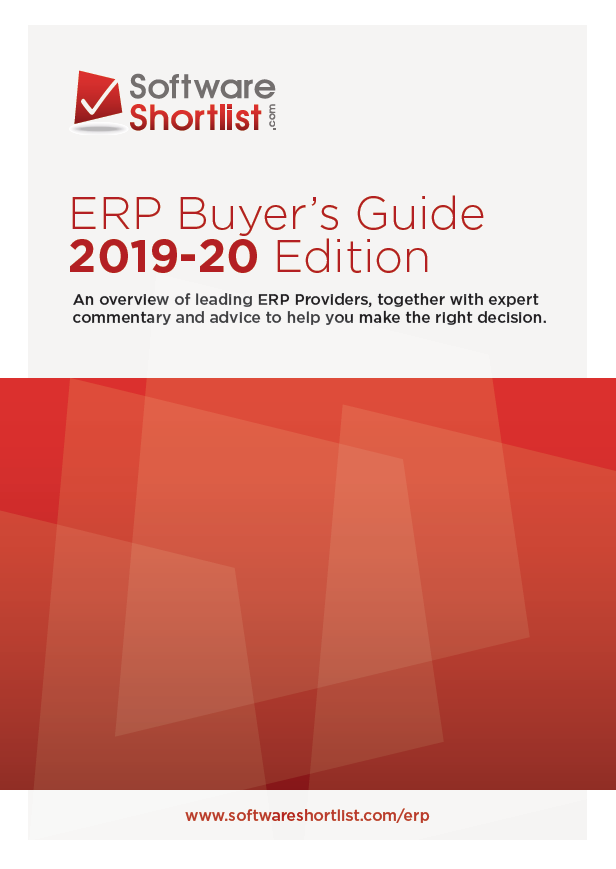An Enterprise Resource Planning (ERP) system consists of interconnected software supporting the core business processes, including financial accounting. An ERP system typically consists of modules such as: Customer Relationship Management, Sales Management, Material Requirements Planning, Production Scheduling, Project Management, Inventory Control, Accounts Receivable, Accounts Payable, General Ledger and so on.
What are the benefits of ERP Systems?
The benefits of the right ERP system can be manifold, including reductions in paperwork; improved productivity; lower costs; and more reliable performance.
Reduction of Paperwork
An ERP all there is the reduction of paperwork. All communication between departments, as far as it related to the core business, goes through the system.
For instance, the sales department enters sales orders and can manage the approval and confirmation process. The Production Manager sees on the computer screen which sales orders are ready for production and issues production orders. If needs be, workers can get a printout of the production order. When the order is processed, usage of material and spent time can be recorded without any extra papers at all.
As the handling of papers is reduced to a bare minimum an important source of errors is eliminated. The reduction of documents also leads to less handling and administrative time & costs, plus there is also the environmental benefit of using less paper.
Improved Productivity
Secondly but of equal importance, improved productivity can be achieved because, when properly applied, the ERP system reduces wastage of time and material.Built-in intelligence and rules can be applied, for instance so that similar production orders are combined to make more efficient use of the workforce, machines and materials.
Lower Costs
Lower costs (expressed as a percentage of the turnover) can be achieved with an ERP. For instance, when full cooperation of suppliers is obtained, the ERP system makesit possible to implement a just-in-time purchasing policy. This can reduce the costs of stock keeping considerably and set free capital otherwise invested in inventory.
Reliable Performance
Another benefit that is very important but not as easy to translate intomoney is the value of smooth and reliable operation. Successful ERP users are more able to keep to agreements with clients regarding to delivery on full and in time, and can communicate more effectively about the progress of a project or a specific production order.
Unfortunately, there are also some pitfalls of ERP systems
Wrong motive for ERP
A commonly made mistake, especially when ERP-like systems first appeared, is the choice for ERP with the wrong motive. There have been many companies who have opted for ERP in order to clean up their messy way of operation. This will almost always end up in a disaster. The old maxim: ‘rubbish in – rubbish out’ still counts. To avoid this pitfall, make sure you first improve your procedures to a reasonable standard before thinking of an ERP.
Underestimating the effort
Widespread is the underestimation of the required efforts of implementing ERP. Such systems that will eventually contain most of the users procedures are very complex.Preparation of the implementation takes much time and work. Underestimation of the required efforts can have severe consequences.
Underestimating the cost
Sometimes an ERP supplier gives an offer that looks clear, but it may contain open ended issues that can cause considerable conflicts with the supplier later on. Always make sure you’ve considered all cost components and how particular scenarios may affect your contract. Another related point is the all-too-common failure to conduct a robust cost/benefit analysis before selection and implementation. This pitfall can cost an enterprise dearly when it later appears that the costs of an ERP system (lease, licence, maintenance, costs of implementation) outweigh the financial benefits.
Choosing the wrong ERP
It is important to avoid a mismatch in scale for ERP systems – a small or medium sized company should avoid buyingtoo big a system, and instead implement one that is more appropriate to their requirements and budget (with some room to grow, of course). Another related issue is choosing the wrong type of ERP – for instance, there are project oriented ERPs and production-line oriented ERPs.Make sure you choose a system that aligns with the type of business you operate.
Conclusion
An ERP system can be a very useful tool for every enterprise in which core procedures can be supported by software. There are significant benefits to implementing an ERP but also many pitfalls that you can fall into. If you can avoid the common pitfalls, your ERP implementation and subsequent usage are much more likely to be successful.



